IMPRESSIONS: Raquel Almazán's “La Paloma Prisoner” at Chelsea Factory
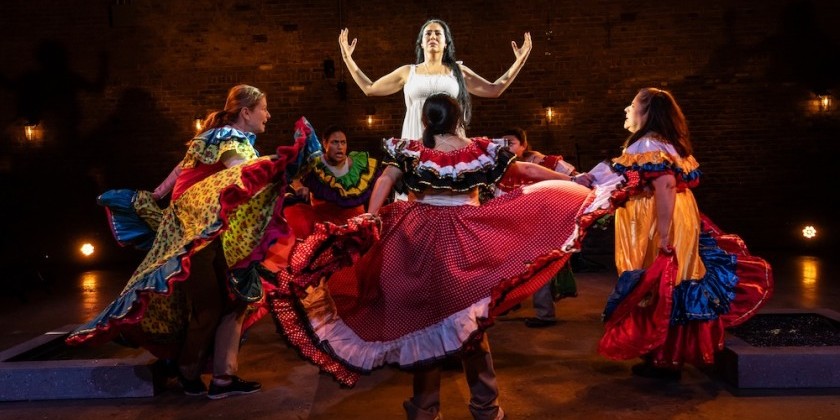
Playwright & Co-Producer: Raquel Almazán | Director & Co-Producer: Estefanía Fadul
Producer: Sam Morreale | Assistant Director: Téa Einarsen
Butoh Movement Choreography: Vangeline Theatre | Fight & Intimacy Director: Lauren Kiele DeLeon
Cast: Raquel Almazán, Carlos Andrickson, Ana Sophia Colón, Yadira Correa, Adriana Gaviria, Gladys Pérez, Sol Miranda, Bobby Plasencia, and Monica Steuer
Music Composition: Lissette Santiago | Scenic Design: Raul Abrego
Costume Design:Haydee Zelideth | Lighting Design: Carolina Ortiz
Sound Design: Daniela Hart & UptownWorks
Song Composer for “Vuela Paloma Vuela”: Julián Mesri
Interdisciplinary artist Raquel Almazán’s blend of creativity and activism blurs the boundaries of theatrical forms and modes of engagement by situating staged works with an issue-oriented ecosystem of programming.
In a workshop production of her two-act play “La Paloma Prisoner” at Chelsea Factory, Almazán and director Estefanía Fadul center on the experiences of a group of incarcerated Colombian women within a larger frame of sociopolitical and carceral systems transformation. With over a decade of development across a host of community partnerships, “La Paloma Prisoner” spans far beyond its two-hour runtime, with an impact crafted to resonate on personal and global levels.
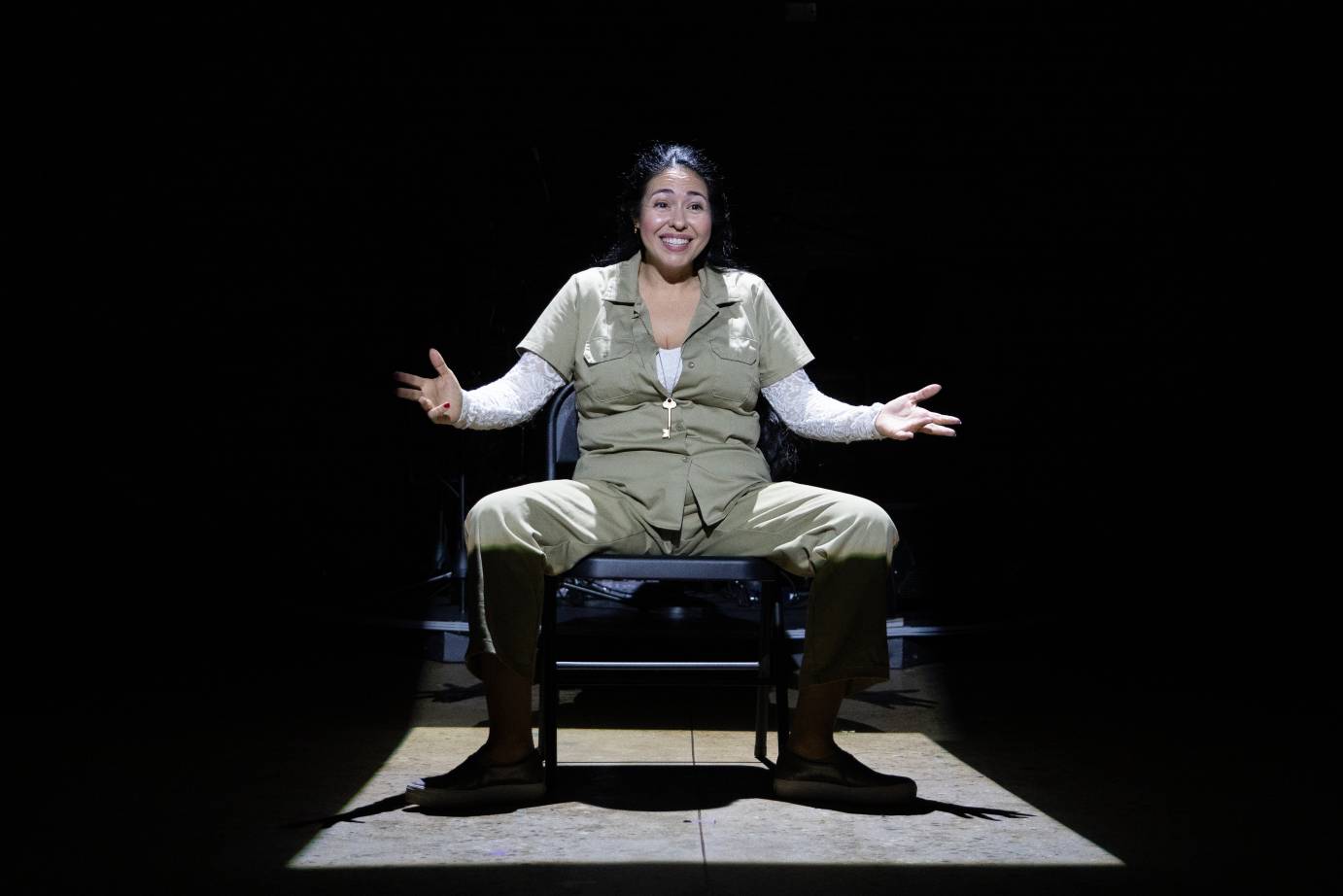
The work’s holistic theatrical sensibility comes through in its use of sensory disruption and embodied forms. The staging is sparse but intentional: water, soil, and light deliver elemental images that ground a focused imagining of the prison setting while directing attention to each woman’s personal history and interior life. A moody soundscape supported by live percussion provides a shifting backdrop for voices to slither under, ride over, or fight against; an original song recurs as a shared incantation as the women conjure their collective spiritual power.
Butoh movement crafted by Vangeline Theatre supports and channels the power of words and images, particularly in moments that juxtapose monologues with shadowed choruses of movement. The visceral essentialism and individualized abstraction of butoh make this form particularly well-suited to the work’s intimacy and vulnerability. As the women wrestle with the burdens of incarceration and the many meanings of freedom, they return again and again to their bodies as sites of personal and shared struggle, mourning, and celebration.
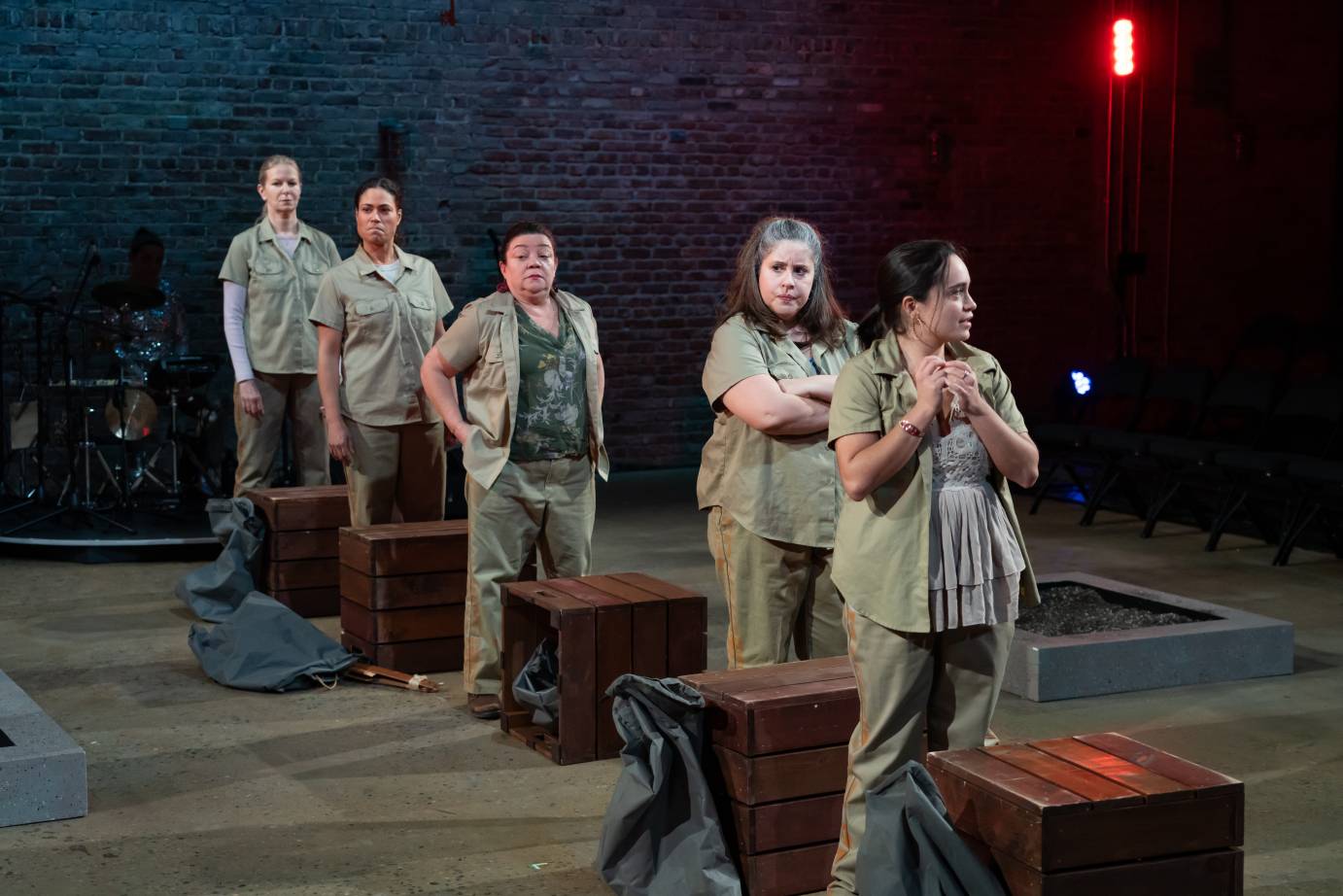
The cast of nine, led by Almazán as the titular Paloma, move throughout with confidence and unflagging commitment to character. As they weave between monologues and group scenes, each woman’s story comes to light and traces back to a root of social or political injustice. Sensation threads throughout as a vehicle for memory and desire, often physically metaphorized through gesture, posture, breath, and movement. Gendered and sexual violence are recurring flashpoints, particularly for Paloma, a quasi-mystical yet all-too-human figure who is both a survivor of rape and a notorious serial killer of rapists.
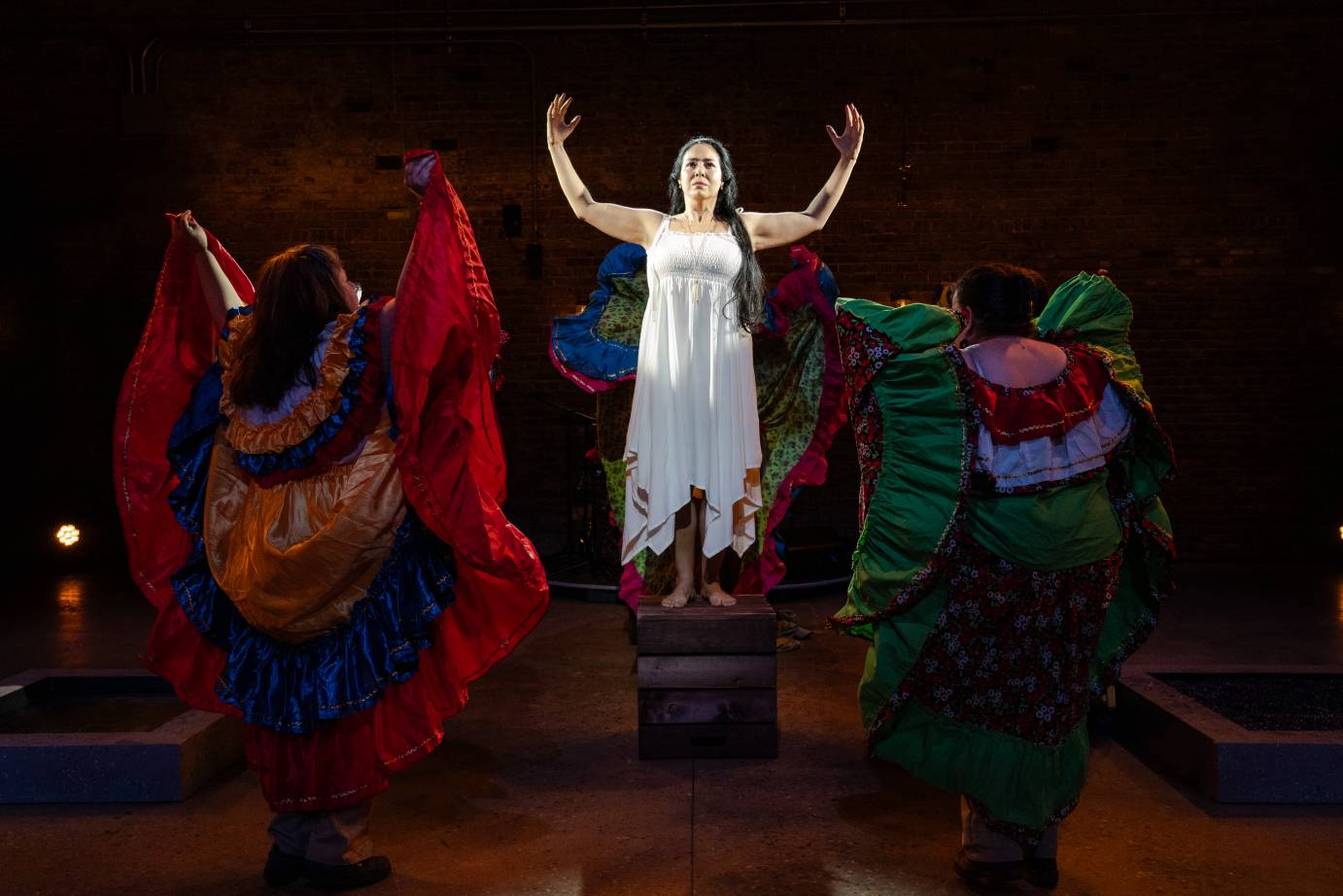
The many intersecting violences of social and state power reverberate against the prison walls: the fallout of warring political factions, the crush of economic repression, the diseases of machismo and misogyny—all are implicated in these women’s suffering and become engines of their collective transcendence. Their participation in a televised prison beauty pageant—based on a real event in Bogotá’s Buen Pastor women’s prison—gives each woman an opportunity to explore herself, reclaim her identity, and shine her light. Even as they are caught up in a flurry of dressing and primping, the women remain conscious of their deeper motivations as they bear witness to one another in the vulnerabilities of pain and joy.
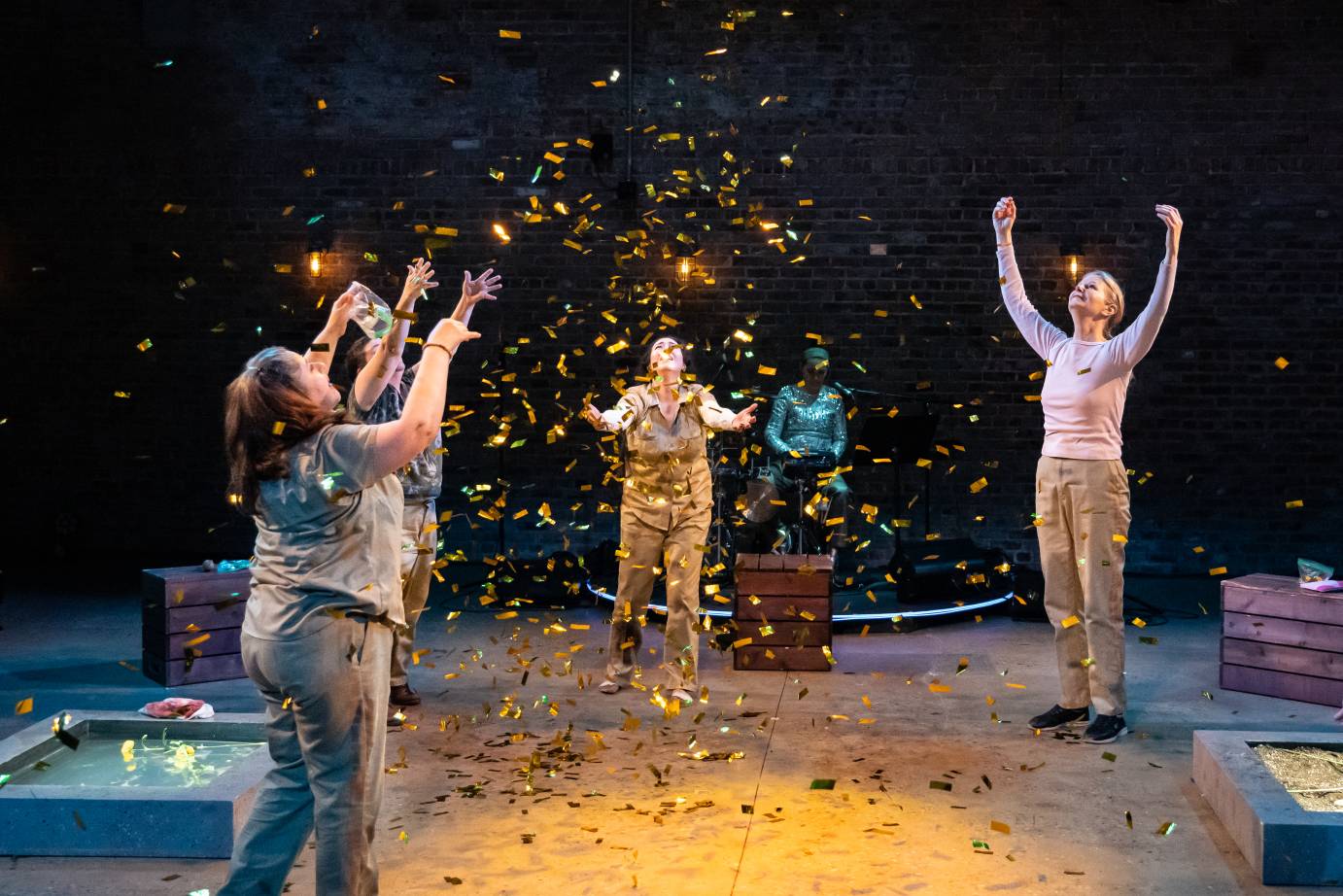
As a work of interdisciplinary theater, “La Paloma Prisoner” participates in the essential work of activism through embodied storytelling drawn from authentic and sustained community engagement. As part of a larger project of imagining systemic criminal justice reform toward global decarceration, Almazán and her creative team strike at the heart of our shared humanity through a wide-ranging commitment to their cause.













